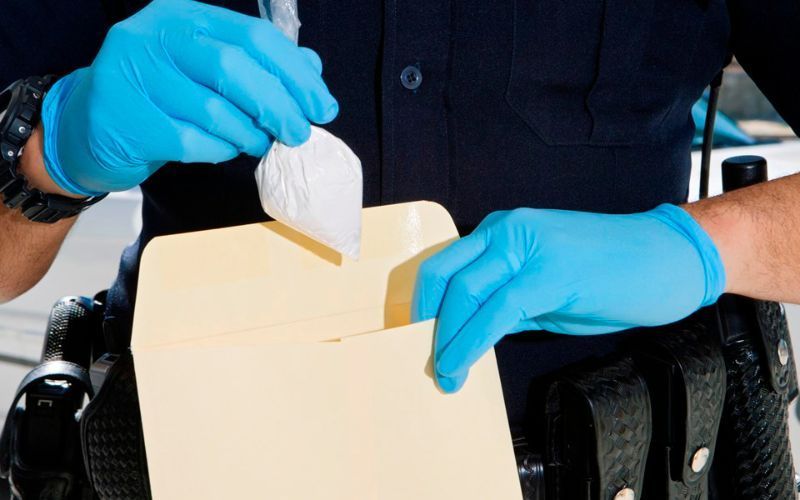How to Become a Detective: Requirements, Training & Career Path
Considering a career as a private investigator in Sydney? This comprehensive guide explores the diverse world of private investigation, outlining key services, explaining their applications, and answering frequently asked questions.
From
background checks and
due diligence to
surveillance and
debt collection, discover how Sydney Private Investigators can provide discreet and confidential solutions to your personal or business needs. Learn how to navigate the process, understand the legal framework, and choose the right investigative service for your specific situation.

Steps to Becoming a Detective
Educational Foundations
A solid educational foundation is crucial for aspiring detectives. A high school diploma or GED is the minimum requirement. However, a bachelor's degree in criminal justice, criminology, psychology, or sociology significantly strengthens your application.
Relevant coursework in law, psychology, and forensic science provides a deeper understanding of the field, covering essential detective qualifications and educational requirements. This academic background equips candidates with valuable analytical and critical thinking skills.
Furthermore, higher education can open doors to advanced career opportunities and specializations within the investigative field.

Entering Law Enforcement
Gaining experience in law enforcement is a common pathway to becoming a detective. Start by researching local law enforcement agency requirements, including age, physical fitness, and background checks.
Understand the application process, which typically involves written exams, interviews, and physical agility tests. Successfully completing police academy training is essential. On-the-job experience as a patrol officer is invaluable, allowing you to develop fundamental skills such as report writing, evidence collection, community interaction, and understanding legal procedures. These are all key elements for fulfilling police officer requirements.
Advancing to Detective
Promotion to detective usually requires several years of service as a patrol officer, consistently strong performance evaluations, and a demonstrated aptitude for investigative work.
Career progression often involves a competitive selection process. Specialized detective training and certifications, such as NDIT (National Domestic Incident Training), CLI (Certified Legal Investigator), and PCI (Professional Certified Investigator), can significantly enhance your expertise and competitiveness.
These certifications demonstrate a commitment to professional development and advanced investigative techniques, boosting your chances of meeting detective promotion requirements. They also provide specialized knowledge in specific areas of investigation.
Essential Skills and Qualities for Detectives
Analytical and Problem-Solving Skills
Detectives rely heavily on analytical and problem-solving skills. Critical thinking, deductive reasoning, and the ability to analyze complex situations are crucial for success in this field. These skills are essential for interpreting evidence, developing theories, and ultimately solving cases.
For instance, analyzing a crime scene requires meticulous attention to detail, the ability to identify relevant evidence, and the capacity to reconstruct events based on available information. Similarly, interpreting witness statements and other forms of evidence demands critical thinking and the ability to discern truth from deception.
Strong problem-solving abilities enable detectives to navigate obstacles, devise effective investigative strategies, and arrive at logical conclusions based on the available evidence.
Communication and Interpersonal Skills
Effective communication is paramount for detectives. Strong written and verbal skills are essential for conducting interviews, writing detailed reports, delivering compelling courtroom testimony, and collaborating with colleagues.
Active listening, empathy, and the ability to build rapport with individuals from diverse backgrounds are crucial for gathering information and obtaining cooperation. Detectives must be skilled in interviewing techniques, adapting their approach based on the individual and the circumstances. Clear and concise report writing is necessary to document evidence and maintain accurate records. Finally, strong communication skills enable detectives to effectively convey their findings in court.
Personal Attributes
Beyond technical skills, certain personal attributes are indispensable for successful detective work. Integrity, ethics, persistence, and resilience are fundamental. Detectives often face stressful and emotionally challenging situations, requiring mental and physical stamina.
Maintaining composure and objectivity is essential for sound judgment and ethical conduct. Persistence and determination are key to pursuing leads, overcoming obstacles, and ultimately solving cases. The ability to handle stress and maintain emotional stability is crucial for making sound decisions under pressure and upholding the highest ethical standards.
Detective Specializations
The field of detective work offers diverse specializations, each requiring a unique skill set and knowledge base. Homicide detectives investigate deaths, focusing on determining cause and manner of death and apprehending those responsible.
Narcotics detectives work to combat drug trafficking, requiring knowledge of drug identification, distribution networks, and undercover operations. Fraud investigators specialize in uncovering financial deception, requiring analytical skills and understanding of financial systems. Cybercrime investigators tackle internet-based crimes, demanding expertise in digital forensics and online investigative techniques.
Detectives specializing in organized crime investigate complex criminal networks, often involving surveillance and intelligence gathering. Financial crimes detectives focus on white-collar crimes, requiring knowledge of accounting, investment fraud, and money laundering schemes.
These specialized investigations demand dedicated expertise and ongoing professional development within each specific field. Other specializations exist, including those focusing on arson, sex crimes, and missing persons.

Police Detectives vs. Private Investigators
While both police detectives and private investigators conduct investigations, their roles, responsibilities, and career paths differ significantly. Police detectives operate within the public sector as part of law enforcement agencies. Their primary focus is upholding the law, investigating crimes, and apprehending offenders.
Private investigators, on the other hand, are typically licensed professionals who offer investigative services to private clients, businesses, and attorneys. These services can range from background checks and due diligence to surveillance and locating missing persons. The educational and licensing requirements also vary.
Becoming a police detective usually involves a career progression within a law enforcement agency, whereas private investigators often come from diverse backgrounds and must obtain a PI license according to state regulations. Choosing between these two career paths depends on individual interests, career goals, and desired work environment.
Career Outlook and Salary Expectations
The career outlook for detectives, particularly in Sydney, is influenced by various factors including crime rates, economic conditions, and government funding for law enforcement. While specific projections can vary, the demand for skilled investigators often remains steady.
Competition for detective positions within law enforcement agencies can be competitive. Opportunities in Sydney may be influenced by local crime trends and the specific needs of law enforcement agencies in the region. Salary expectations for detectives depend on experience, location, and specialization.
Entry-level positions typically offer lower salaries, while experienced detectives, especially those with specialized skills in areas like cybercrime or financial investigations, can command higher earnings. Private investigators often have a different salary structure, with earnings potentially linked to the number and complexity of cases handled.
Researching current job postings and salary surveys for the Sydney area can provide a more accurate picture of current detective salary and employment opportunities.

FAQs about Becoming a Detective
What is the average salary for a detective in Sydney?
The average detective salary in Sydney varies based on experience, specialization, and the employing agency. Entry-level positions may start in a lower range, while experienced detectives, especially those with specialized skills, can earn significantly more. It's essential to research current job postings and salary surveys for the most up-to-date information.
How long does it take to become a detective?
Becoming a detective typically takes several years. This includes completing the necessary education, gaining experience as a police officer (usually a minimum of a few years), and successfully navigating the promotion process. The specific timeframe can vary depending on individual career paths and agency requirements.
Do I need a degree to become a detective?
While a degree isn't always strictly required to become a police officer, a bachelor's degree significantly enhances career prospects, particularly for advancement to detective. It provides a strong foundation in relevant areas such as criminal justice, criminology, or law.
What are the physical requirements for becoming a detective?
Aspiring police officers, including future detectives, typically need to meet certain physical fitness standards. This usually involves passing physical agility tests, demonstrating strength and endurance, and clearing medical evaluations.
What are the most important skills for a detective?
Essential skills for detectives include analytical thinking, problem-solving, effective communication (both written and verbal), integrity, resilience, and strong interpersonal skills. The ability to remain objective, handle stress, and make sound judgments under pressure is also crucial.
Peak PI - Providing Services for Detective Investigations in Sydney
Peak PI is a leading private investigation agency serving Sydney. We specialize in a comprehensive range of investigative services tailored to meet the needs of individuals and businesses.
Our expertise includes background checks, surveillance, due diligence investigations, and locating missing persons. These services can be invaluable in various situations, such as verifying information, gathering evidence for legal cases, conducting pre-employment screenings, or addressing concerns about infidelity.
At Peak PI, we prioritize confidentiality and discretion. Our experienced investigators utilize advanced techniques and adhere to the highest ethical standards. Contact us today for a confidential consultation.
- Phone number: 0401036356
- Email: constellation2401@gmail.com
- Website:
https://peakpi.com.au/

Read More:
- Digital Forensics Sydney: Expert Services & Investigations
- Simon Gittany Case: Trial, Sentence, & Domestic Violence
- Detect Bugging Devices: A Comprehensive Guide to Protecting Your Privacy
Becoming a detective requires dedication, perseverance, and a commitment to continuous learning. From obtaining the necessary education and gaining experience in law enforcement to developing essential skills and specializing in a chosen area of investigation, the path to becoming a detective can be challenging yet rewarding.
Whether you aspire to work within a police department or as a private investigator, pursuing a career in investigation demands a passion for justice, a sharp mind, and unwavering integrity. If you're ready to take the next step or require assistance with your investigative needs, contact Peak PI today. We are here to provide confidential and professional support.


